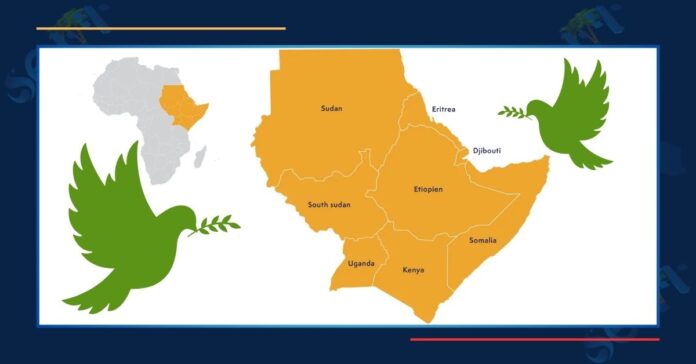Executive Summary
In 2024, Ethiopia and Russia signed agreements expanding cooperation in nuclear energy and naval defense. Both governments present these deals as developmental, but Ethiopia’s enduring political fragility, unresolved internal conflicts, and strained relations with its neighbors make such projects especially risky. These agreements may worsen instability in the Horn of Africa and undermine Russia’s credibility in Africa.
Key finding: Absent regional safeguards, Russia’s naval and nuclear cooperation with Ethiopia is reckless and risks being viewed as a form of negligence with predictable civilian and regional consequences.
Background
Ethiopia’s Fragility: For over fifty years, Ethiopia has cycled through authoritarian rule, ethnic conflict, and humanitarian crises. Active violence in Tigray, Amhara, and Oromia continues to displace millions (Council on Foreign Relations, 2024).
Russian Engagement: In September 2024, Ethiopian Prime Minister Abiy Ahmed met with President Vladimir Putin, announcing expanded cooperation in nuclear energy, energy projects, and military technology (Kremlin, 2024).
Naval Agreement: Ethiopia and Russia signed a naval cooperation pact in 2024, signaling Moscow’s broader push into Red Sea security (Fanamc, 2024; ICDS, 2023; ICWA, 2024).
Risks and Implications
Domestic Risks
Ethiopia lacks the institutional capacity to regulate nuclear facilities or protect naval assets.
New agreements risk empowering factions, aggravating ethnic conflict, and diverting resources from humanitarian relief.
Regional Risks
Naval ambitions may alarm neighbors such as Eritrea, Djibouti, and Somalia.
Disputes over Red Sea access could spill into broader Horn of Africa instability.
Global Risks
Militarization in Ethiopia may entrench great-power competition in a fragile region, raising risks for Red Sea maritime security and global trade.
Russia’s reputation as a cautious African partner may erode if cooperation destabilizes its allies.
Policy Options
- Restraint in Bilateral Deals
Russia should pause or scale down nuclear and naval initiatives until Ethiopia demonstrates improved stability and governance.
Ethiopia should prioritize peacebuilding and security-sector reform over new militarization.
- Continental Framework
Reframe nuclear and naval projects as African Union initiatives rather than bilateral ventures.
Regional distribution (e.g., one project per African region) would spread benefits and reduce political risk.
- Continental Security Protection
Facilities should be secured by an AU protection force, insulated from global rivalries.
Neutrality, rotation across regions, and rights-based rules of engagement are critical safeguards.
Recommendations
For Ethiopia:
Suspend sensitive military and nuclear cooperation until peace agreements are consolidated.
Rebuild trust with neighbors before advancing Red Sea or naval ambitions.
For Russia:
Return to a cautious, non-escalatory Africa policy.
Avoid initiatives that risk inflaming conflict within friendly states.
For the African Union:
Lead in designing continental frameworks for strategic projects.
Ensure accountability, transparency, and neutrality in any nuclear or naval initiative.
Conclusion
Russia’s naval and nuclear agreements with Ethiopia may appear ambitious, but under current conditions they risk worsening Ethiopia’s instability, straining regional relations, and undermining continental security. Without continental ownership, regional safeguards, and insulated protection mechanisms, such projects remain reckless gambles that could do more harm than good.
—
References
Council on Foreign Relations. (2024). Conflict in Ethiopia. Global Conflict Tracker. https://www.cfr.org/global-conflict-tracker/conflict/conflict-ethiopia
Fanamc. (2024, September 12). Ethiopian and Russian navies sign cooperation agreement. https://www.fanamc.com/english/ethiopian-russian-navies-signcooperation-agreement/
International Centre for Defence and Security (ICDS). (2023, June 26). Russia and the Red Sea since 2022: Militarised foreign policy or strategy of conflict?
Indian Council of World Affairs (ICWA). (2024, February 16). Russia’s new naval ambitions in the Red Sea. https://www.icwa.in/show_content.php? lang=1&level=1&ls_id=13073&lid=7980
Kremlin. (2024, September 3). Meeting with Prime Minister of Ethiopia Abiy

